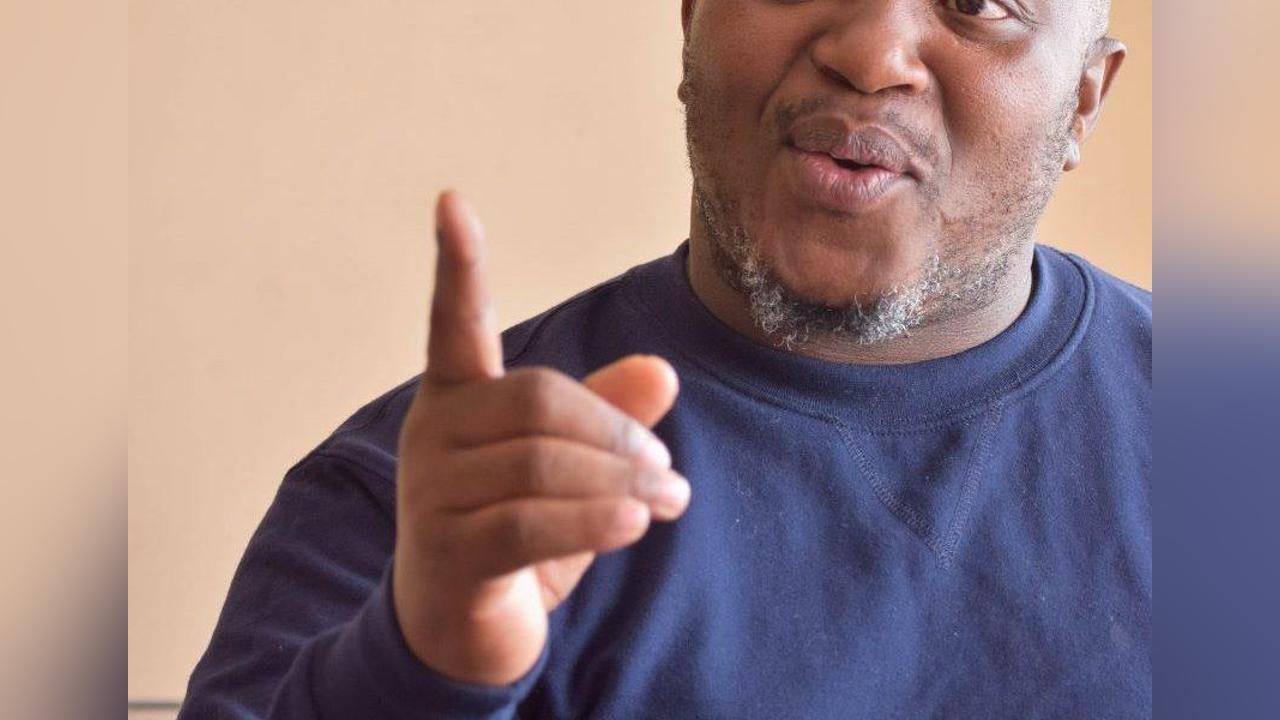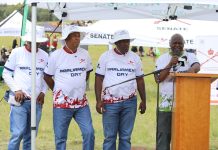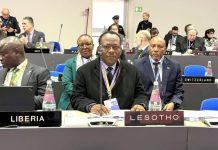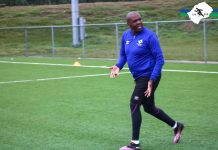Africa-Press – Lesotho. Abandoned and disowned by his father at a young age, life seemed headed for the doldrums for Advocate Makhetha Motšoari. The Sesotho adage “mohale o tsoa maroleng” fits well into the successful lawyer’s narrative.
Despite the childhood hardships, he has grown to become a top lawyer and businessman, running a travel and tourism venture, family counselling business and is a farmer of reckon.
“For a person to shine, he has to experience some pain,” says Advocate Motšoari, who is also the Chairperson of the Police Compliance Authority (CPA) and Chairperson of Lesotho Council of Tourism.
“At first I saw nothing wrong that my father was rarely at home and my mother was doing odd jobs to make ends meet because I was too young to understand,” Advocate Motšoari says.
The 42-year-old lawyer says he learned to mend shoes because his mother could not afford to buy him new ones when he was in primary school. “When the shoes became worn out beyond repair I started going to school wearing gumboots and when they became torn I learned how to patch them.
This lessened my mother’s burden because now all she had to concentrate on was to bring food in the house,” he recalls. It was at this time the young Motšoari started a small commercial farming business, growing vegetables from the family’s small garden and selling the produce in his rural Matelile village, in Mafeteng district.
“My mother never told us about what was happening with our father. We were six siblings.
He would come home after a while and we would see him at a distance and happily run to meet him, jumping around him as we helped carry his luggage,” he says.
He remembers having no money to pay school fees after passing Standard Seven. The school principal facilitated for the National Manpower Development Secretariat (NMDS) to pay for his fees from Form A to Form C.
It was after he passed Form C and was going to another school when he discovered why his father was behaving errantly. “My mother did not tell me that there was a problem between the two of them, but told me to go to my father’s workplace to ask for money,” he recalls.
His father worked in the mines in Welkom, Free State, at the time. “This time things were really tough that my mother could not put a cent on the table hence she sent me to South Africa to meet my father,” he reminisces.
When he arrived at the mine, things took a dark turn. “I was told that my father lived in the mine compound but to my surprise I didn’t see him until the next morning,” he says.
Advocate Motšoari remembers standing by the mine gate hoping to see his father when he checked in or out but that didn’t happen. Mine workers asked him what he was doing there at the gate and he told them that he was looking for his father.
“My father had changed his name hence I struggled to find him and his location.
He says he learnt this from a mineworker from the same area of Matelile who took him to spend the night at his quarters, helping him to find his father the next day.
“That man gave me bread in the morning and told me to wait at the gate as my father would arrive anytime soon.
” Advocate Motšoari’s father eventually arrived.
“Instead of being pleased to see me, he angrily shouted at me and asked what I was doing there, saying I was going to humiliate him.
” His father ordered him to return to Lesotho.
“It was a horrible day for me. I cannot even recall if he gave me the money my mother had asked for. ”
The father then took him on a long drive to a place where he was staying: a squatter camp full of corrugated iron shacks. “Boom! What a bomb! He had another family there.
”
“As we entered the house, he introduced me to a lady in that house that this is Makhetha and told me to meet my other family.
” He was ordered to sleep on a couch. It was a nightmare for him. He could not sleep peacefully trying to connect all the dots and it started to make sense why his father had abandoned them.
Come morning, he was sent back home where he asked his mother why she had not told him the situation. “My mother did not answer me, but I believed she wanted me to see for myself, which I did.
” At the end of the year, his father came home to take all his children with him leaving his wife behind.
Advocate Motšoari says he chose to stay behind with his mother. “I told him that he could take my other siblings but not me, I told him I would stay with my mother.
” It was at that moment when he lost his father for good.
“My father told me that if I stayed I should consider him dead as he would not support me in any form.
He said he would not give me money as he had disowned me. ” Advocate Motšoari says he never thought his father was serious about it. “But I discovered that he was serious.
For two years, he didn’t come home and didn’t send us any money. ” He proceeded to the new school for senior high school after the principal facilitated government sponsorship for him.
His results were not good enough to earn him a university place. Advocate Motšoari decided to go to South Africa to plead with his father to help him further his education.
“He was disinterested.
“Although he allowed me to live with him, he only gave me M150 when a private school I had approached to supplement required M900.
” Advocate Motšoari says he told the principal about his problem. The principal paid the tuition fee from his own pocket. Advocate Motšoari gave the principal M100 and started a small business with the remaining M50.
“I bought cigarettes and some vegetables to sell on the streets so that I would be able to have transport to and from school,” he says.
“It became a habit as my siblings were also interested and started to assist me.
” He says he would leave the business in the hands of his siblings when he went to school. His father had not enrolled his siblings at school despite education being free in South Africa.
After some time, when he was about to complete his high school studies, Advocate Motšoari’s father fell terminally ill. His father’s deathbed words further riled Advocate Motšoari.
“His last words to me were that there was R1 000 which he had kept in the house. My siblings and I should take it as transport money back home in Lesotho because he could see that he was going to die,” he recalls.
The father, says Advocate Motšoari, told him they should not claim anything from the family in Welkom, the M1 000 was all there was for them. After his father’s burial in Lesotho, Advocate Motšoari went back to South Africa to sit for exams, which he passed.
He applied to study law at the National University of Lesotho (NUL). His mother went from house to house in the village borrowing money for his transport to the university in Roma as well as his upkeep pending the NMDS paying his stipend.
“My mother was in tears as she helped me.
” He says that was when their life changed as a family. With his first stipend, he made sure that his family changed for the better.
“I was now the bread winner of the family, with my student money I took my siblings to school, took care of my mother and everything,” he says.
He credits Professor Kananelo Mosito for taking him in and guiding him as a young lawyer during his internship and after graduation. “He motivated me to be who I am today.
He shaped and groomed me until I had my own law firm. ” The difficult childhood made Advocate Motšoari vow that he was going to help other people. He started with his family, helping his mother rear cattle and sheep.
She is now a livestock farmer and is in the national committee of wool producers. “I told my mother that she would never suffer like she used to,” he says.
“She played her role as a mother. I told her I would not give her money but I would create projects which she would run and make a living for herself. ”
To help other young, struggling lawyers, Advocate Motšoari makes sure that his law firm always has at least five to nine of them. He also has a vibrant tourism business called Boqate Leisure Park in Ha-Leqele, about 10 kilometres south-east of Maseru city.
Advocate Motšoari tried his hand in politics under the All Basotho Convention (ABC), with the hope that he would be voted to parliament. He failed twice in his Matelile constituency.
Former Prime Minister Thomas Thabane then appointed him to be the Cabinet Administrator Compliance and Assurance Specialist where he worked until he was appointed chairperson of Police
Compliance Authority, a position he is still holding. Advocate Motšoari says he is working hard to create jobs through tourism because he has realised that Lesotho has a lot of sites that can attract tourists.
For More News And Analysis About Lesotho Follow Africa-Press






